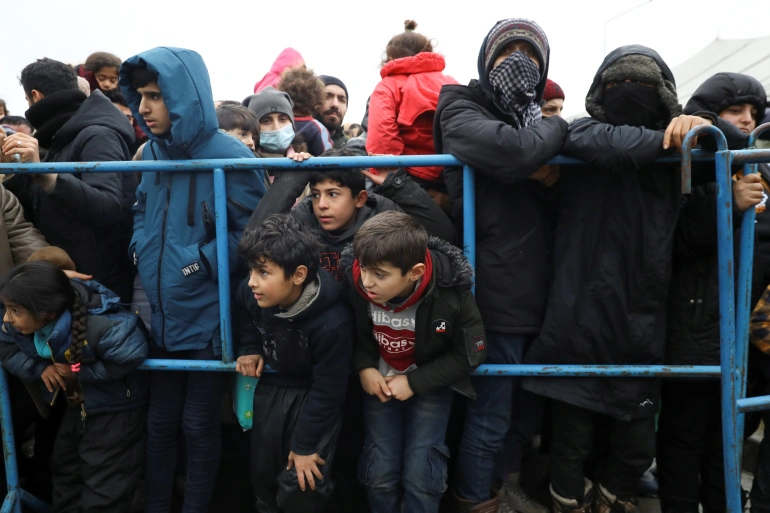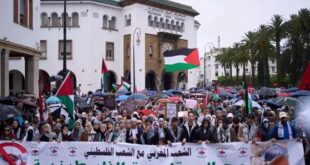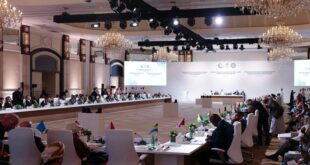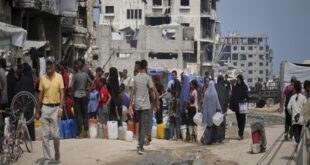
Baghdad, Iraq – As the plane taxied on the runway of Erbil’s airport after a three-hour flight from the Belarusian capital Minsk, Azad looked out the window, clutching his wife’s hands.
“We’ll lower our hats, wear masks, and leave the airport as soon as possible,” Azad, a 28-year-old man from the Kurdish city of Duhok, recalled telling his wife after their failed attempt to enter the European Union from Belarus.
Left physically bruised and in indescribable emotional pain, Azad and his wife, who asked not to be fully named, told Al Jazeera they had been treated like animals at the Belarus-Poland border and did not want to be subjected again to rounds of questions by reporters as soon as they returned to the place they so desperately wanted to leave.
“For now, we’ll try not to think about our future too much because as soon as we start thinking, it’ll become clear that we don’t have one here in Kurdistan,” Azad told Al Jazeera while sitting in their house in Duhok. “But we both know we are probably stuck here for the rest of our lives.”
For many Iraqi families stuck at the Poland-Belarus border, waiting was simply not an option any more.
Azad, along with some 430 other Iraqis, returned from Belarus to Iraq last Thursday on a government-mandated repatriation flight, as part of the Iraqi government’s bid to ease the tensions that have been flaring by the Belarus-Poland border for the past few months.
While most of the refugees and asylum seekers decided to remain in Belarus with the growingly slim hope that they could someday cross into Poland, others “gave up their naive hope that they could succeed” and decided that they would return home, Azad said.
‘Time to let go’
Coming back to Iraq was not an easy decision to make. Just like many others who left for Belarus in the hope of entering the EU, Azad saved up, asked for financial support from his family, and nearly sold his house. When they heard the Iraqi government was offering repatriation flights from Minsk for those who wished to return voluntarily, their first reaction was an adamant “No”.
“I remember I told my wife in our tent at night that we didn’t spend all the money and waste all this energy so we would go back to Iraq,” Azad said. But then the next day, the usual clashes between the Belarusian border forces and their counterparts in Poland occurred.
Azad said they were being pushed by the Belarusian police to the other side of the border, while Polish police were then pushing them back.
“Back and forth, back and forth, they were playing us like animals,” he said, becoming visibly upset. “That was the moment when we thought it was time to let go of this dream of moving to Europe.”
What was described by Azad is only a fraction of a political and humanitarian crisis that has been unfolding at the EU’s eastern frontier. So far, at least 11 people have died in this round of the border crisis, and many others are facing freezing temperatures and a dwindling supply of essentials.
Despite the Belarusian government’s effort to bus migrants and asylum seekers to warehouses for temporary shelter, it remains unclear how the government will resolve this crisis. Western politicians accuse Belarusian President Alexander Lukashenko of using migrants and asylum seekers as “weapons” for revenge against the EU’s sanctions on his government.
For many like Azad, waiting simply is not an option any more: they decided to go back home. Now back in Iraq, Azad said they were lucky he did not sell the house. But that is the last thing he owns now: He sold the sofas, the refrigerator, and even the coffee pot. Basically, anything that could be turned into cash to support their odyssey out of Iraq was fair game for sale.
Social media posts also revealed a grim picture of what awaits the returnees in the Kurdish region of northern Iraq. For example, one Kurdish family did not even have enough money for a taxi to take them from the airport to the internally displaced people’s (IDP) camp where they resided.

‘Only choice I had’
Even though the Kurdish region, home to the Iraqi Kurds and some Yazidis, enjoys relative security and prosperity compared with the rest of Iraq, people who live in the region face rising unemployment and endemic corruption. Ravaged by the armed group ISIL (ISIS), some parts of the Kurdish and Yazidi communities are still struggling to rebuild.
Employment opportunities are scarce and many young people like Azad are not seeing a future in the Kurdish region. “I tried and tried, but I simply couldn’t find a job, so leaving Erbil was the only choice I had,” said another young Kurdish man who is still in Belarus.
The regional government, in the face of the hardships that many of the people encounter in the region, insists the migrant crisis was stirred up by people smugglers. Yet many people who spoke with Al Jazeera said they voluntarily left their homes and went to Belarus with travel agency-arranged flights and visas.
For the 430 people who have returned from Europe to Iraq, their future now is even bleaker than when they decided to embark on this journey a few months ago. Without government support, many are facing more despair.
“I don’t expect the media to really care about us and I don’t think people could really understand what we are going through, but I’m glad that I have someone to talk to,” Azad said, standing up from the floor and ending the conversation.

World Opinions – AL JAZEERA




 World Opinions Débats De Société, Questions, Opinions et Tribunes.. La Voix Des Sans-Voix | Alternative Média
World Opinions Débats De Société, Questions, Opinions et Tribunes.. La Voix Des Sans-Voix | Alternative Média




